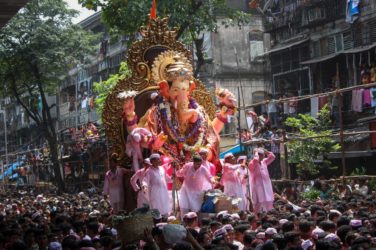More than just a practical way to stop getting sunburnt, what you stick on top of your head says a lot. Cultural signifiers, just as much as the language we speak, hats hint at the country we’re from or at least where we’ve visited on our travels. Try these classics on for size.
Sombrero from Mexico
The last word in sun protection, these wide-brimmed Mexican icons are named after the Spanish word for shade. First invented by the peasants and made famous by caballeros, the sombrero is the headgear of choice for many mariachi band members.
Best feature: Only a matador’s outfit offers more sparkle.
Worst feature: Having to tilt your head sideways to pass through narrow alleys.
Baseball cap from USA
Spawned in America, but embraced all over the word, the baseball cap is far more than a fashion item or sun protection tool: it’s a 21th century marketing vehicle, rivalled only by the t-shirt.
Best feature: One size fits all.
Worst feature: Can also be worn backwards.
Gatsby cap from England
A cousin of the flat cap, the Gatsby cap has a fuller, rounder body and was favoured by 19th century English working class men. Later, it was adopted by unbearable golfing toffs.
Best feature: Instant European sophistication.
Worst feature: You may be mistaken for a paperboy.
Stetson ‘Turin’ fedora from Italy
Western hat makers Stetson contracted Italy’s Borsalino to make this fur felt, hand-creased classic. Many consider Borsalino the world’s finest hat maker.
Best feature: Versatile and easily customized.
Worst feature: Favoured by gangster movie extras.
Alpaca wool beanie from Ecuador
Andean peoples have knitted hats like this since the time of the Incas. Using the wool from local alpacas, they were sustainable and organic way before it was hip!
Best feature: Two words – ear flaps.
Worst feature: Damn itchy.
Buddist lama headdress from Nepal
Throughout the Himalayan foothills, hats like these help differentiate the lama from the other monks during Buddhist ceremonies. Yellow signifies wisdom and awareness.
Best feature: Status symbol.
Worst feature: Hopeless in a crosswind.
Balinese peasant hat
Spotted in rice paddies throughout south-east Asia, these funnel shaped hats originated in China and are usually made from matted grass or banana leaves.
Best feature: Monsoon proof.
Worst feature: Painful if sat on.




